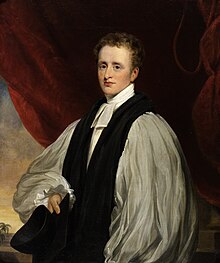
Joseph Rudyard Kipling was an English novelist, short-story writer, poet, and journalist. He was born in British India, which inspired much of his work.
This is a bibliography of works by Rudyard Kipling, including books, short stories, poems, and collections of his works.

Captains Courageous: A Story of the Grand Banks is an 1897 novel by Rudyard Kipling that follows the adventures of fifteen-year-old Harvey Cheyne Jr., the spoiled son of a railroad tycoon, after he is saved from drowning by a Portuguese fisherman in the north Atlantic. The novel originally appeared as a serialisation in McClure's, beginning with the November 1896 edition with the last instalment appearing in May 1897. In that year it was then published in its entirety as a novel, first in the United States by Doubleday, and a month later in the United Kingdom by Macmillan. It is Kipling's only novel set entirely in North America. In 1900, Teddy Roosevelt extolled the book in his essay "What We Can Expect of the American Boy," praising Kipling for describing "in the liveliest way just what a boy should be and do."
Rimmon or Remmon is a name in the Hebrew Bible meaning "pomegranate".

"The Man Who Would Be King" (1888) is a story by Rudyard Kipling about two British adventurers in British India who become kings of Kafiristan, a remote part of Afghanistan. The story was first published in The Phantom 'Rickshaw and Other Tales (1888); it also appeared in Wee Willie Winkie and Other Child Stories (1895) and numerous later editions of that collection. It has been adapted for other media a number of times.
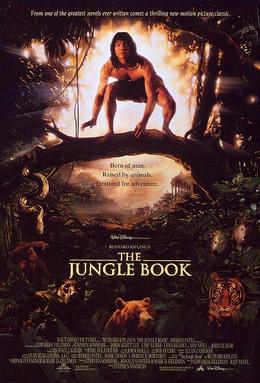
Rudyard Kipling's The Jungle Book, also known as The Jungle Book, is a 1994 American adventure film co-written and directed by Stephen Sommers, produced by Edward S. Feldman and Raju Patel, from a story by Ronald Yanover and Mark Geldman. It is a live-action adaptation of the Mowgli stories from The Jungle Book (1894) and The Second Jungle Book (1895) by Rudyard Kipling unlike its counterparts, the animal characters in this film do not talk.
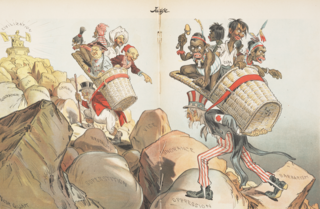
"The White Man's Burden" (1899), by Rudyard Kipling, is a poem about the Philippine–American War (1899–1902) that exhorts the United States to assume colonial control of the Filipino people and their country. Originally written to celebrate the Diamond Jubilee of Queen Victoria, the jingoistic poem was replaced with the sombre "Recessional" (1897), also a Kipling poem about empire.

The Light That Failed is the first novel by the Nobel Prize-winning English author Rudyard Kipling, first published in Lippincott's Monthly Magazine in January 1891. Most of the novel is set in London, but many important events throughout the story occur in Sudan and Port Said. It follows the life of Dick Heldar, an artist and painter who goes blind, and his unrequited love for his childhood playmate, Maisie.
"The law of the jungle" is an expression that has come to describe a scenario where "anything goes". The Oxford English Dictionary defines the Law of the Jungle as "the code of survival in jungle life, now usually with reference to the superiority of brute force or self-interest in the struggle for survival".
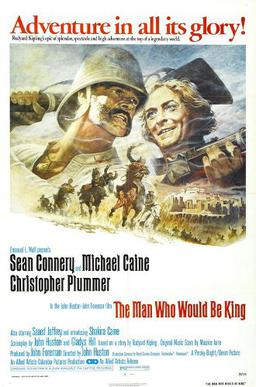
The Man Who Would Be King is a 1975 adventure film adapted from the 1888 Rudyard Kipling novella of the same name. It was adapted and directed by John Huston and starred Sean Connery, Michael Caine, Saeed Jaffrey and Christopher Plummer as Kipling. The film follows two rogue ex-soldiers, former non-commissioned officers in the British Army, who set off from late 19th century British India in search of adventure and end up in faraway Kafiristan, where one is taken for a god and made their king.
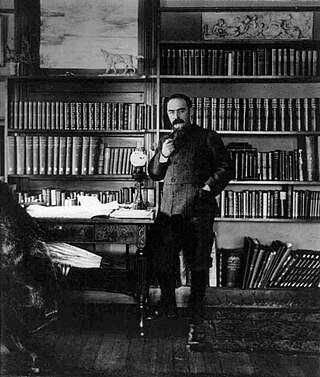
"The Absent-Minded Beggar" is an 1899 poem by Rudyard Kipling, set to music by Sir Arthur Sullivan and often accompanied by an illustration of a wounded but defiant British soldier, "A Gentleman in Kharki", by Richard Caton Woodville. The song was written as part of an appeal by the Daily Mail to raise money for soldiers fighting in the Second Boer War and their families. The fund was the first such charitable effort for a war.

"Recessional" is a poem by Rudyard Kipling. It was composed for the Diamond Jubilee of Queen Victoria, in 1897.
"My Boy Jack" is a 1916 poem by Rudyard Kipling. Kipling wrote it for Jack Cornwell, the 16-year-old youngest recipient of the Victoria Cross, who stayed by his post on board the light cruiser HMS Chester at the Battle of Jutland until he died. Kipling's son John was never referred to as "Jack". The poem echoes the grief of all parents who lost sons in the First World War. John Kipling was a 2nd Lt in the Irish Guards and disappeared in September 1915 during the Battle of Loos in the First World War. The poem was published as a prelude to a story in his book Sea Warfare written about the Battle of Jutland in 1916. The imagery and theme is maritime in nature and as such it is about a generic nautical Jack, though emotionally affected by the death of Kipling's son.
The "Fore and Aft" Regiment is the nickname of the fictional "The Fore and Fit Princess Hohenzollern-Sigmaringen-Anspach's Merther-Tydfilshire Own Royal Loyal Light Infantry, Regimental District 329A." It is mentioned in "The Drums of the Fore and Aft" by Rudyard Kipling.
In the British Army, a gentleman ranker is an enlisted soldier suited through education and social background to be a commissioned officer or indeed a former commissioned officer. Rudyard Kipling titled one of his poems, which was published in 1892, "Gentlemen-Rankers".

In Black and White is a collection of eight short stories by Rudyard Kipling which was first published in a booklet of 108 pages as no. 3 of A H Wheeler & Co.’s Indian Railway Library in 1888. It was subsequently published in a book along with nos 1 and 2, Soldiers Three (1888) and The Story of the Gadsbys, as Soldiers Three (1899). The characters about whom the stories are concerned are native Indians, rather than the British for writing about whom Kipling may be better known; four of the stories are narrated by the Indians, and four by an observant wise English journalist. The stories are:
"The Ballad of East and West" is a poem by Rudyard Kipling. It was first published in 1889, and has been much collected and anthologized since.

"The King's Pilgrimage" is a poem and book about the journey made by King George V in May 1922 to visit the World War I cemeteries and memorials being constructed at the time in France and Belgium by the Imperial War Graves Commission. This journey was part of the wider pilgrimage movement that saw tens of thousands of bereaved relatives from the United Kingdom and the Empire visit the battlefields of the Great War in the years that followed the Armistice. The poem was written by the British author and poet Rudyard Kipling, while the text in the book is attributed to the Australian journalist and author Frank Fox. Aspects of the pilgrimage were also described by Kipling within the short story "The Debt" (1930).

John Kipling was the only son of British author Rudyard Kipling. In the First World War, his father used his influence to get him a commission in the British Army despite being decisively rejected for poor eyesight. His death at the Battle of Loos caused his family immense grief.

Known unto God is a phrase used on the gravestones of unknown soldiers in Commonwealth War Graves Commission (CWGC) cemeteries. The phrase was selected by British poet Rudyard Kipling who worked for what was then the Imperial War Graves Commission during the First World War. The origin of the phrase is unknown but it has been linked to sections of the King James Bible. The phrase was re-used for those killed during the Second World War and appears on more than 212,000 gravestones across the world. In 2013 there was controversy when it was proposed that the phrase be removed from the Tomb of the Unknown Soldier at the Australian War Memorial.
